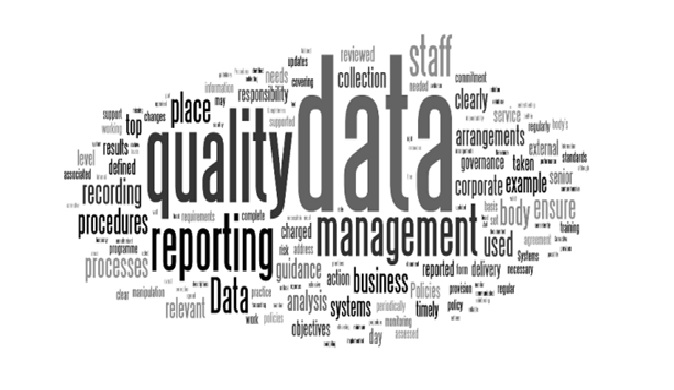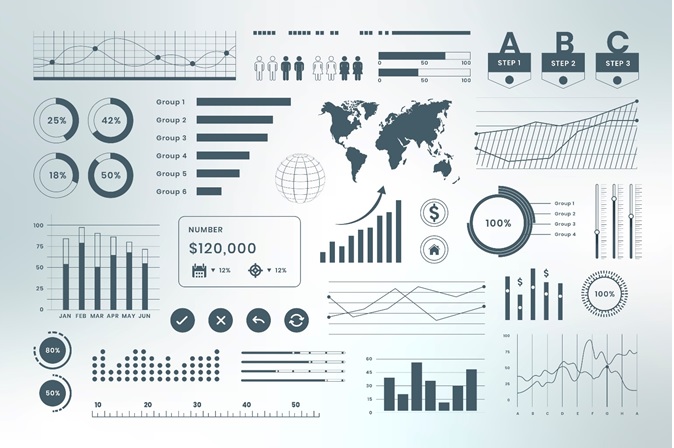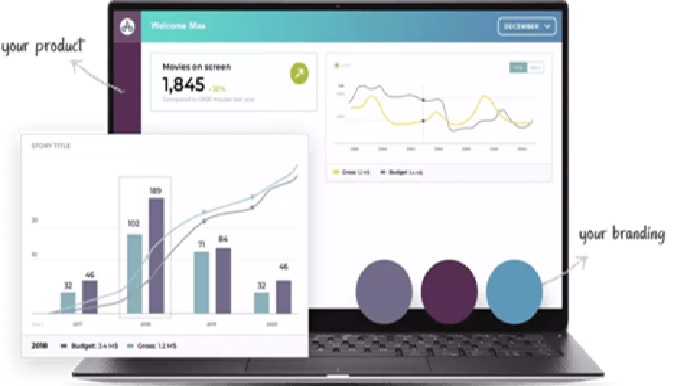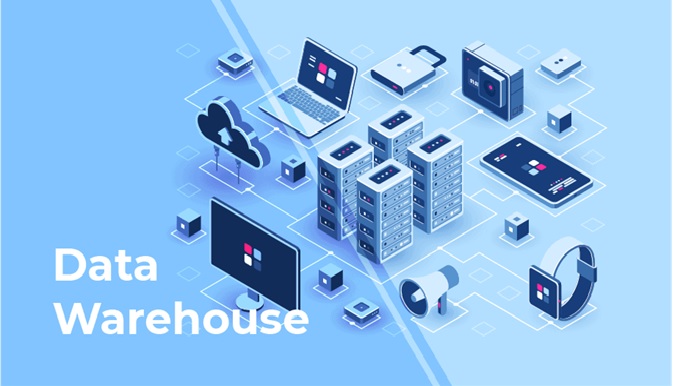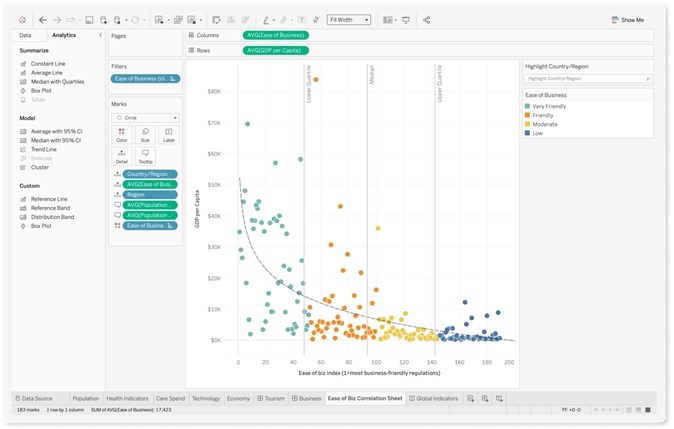Data Governance Will Be a Primary Ask When Seeking BI Software
Among trends in business intelligence, assigning dedicated data roles like that of data stewards is a significant move that can reap rich dividends. BI software with built-in role-based permission controls and authentication protocols is in demand.
A readymade governance framework helps secure data per industry standards. Strict oversight and penalties ensure organizations are serious about compliance, so it’s unlikely they’ll accept anything less when shopping for BI tools.
It impacts data quality management (DQM), which is paramount as user trust is everything. Your organization’s growth depends on your customers trusting you with their data. A Business Application Research Center survey shows that DQM with governance ranks in the top significant BI trends.
Straits Research predicts the global data governance market will grow to $11.68 billion by 2030.
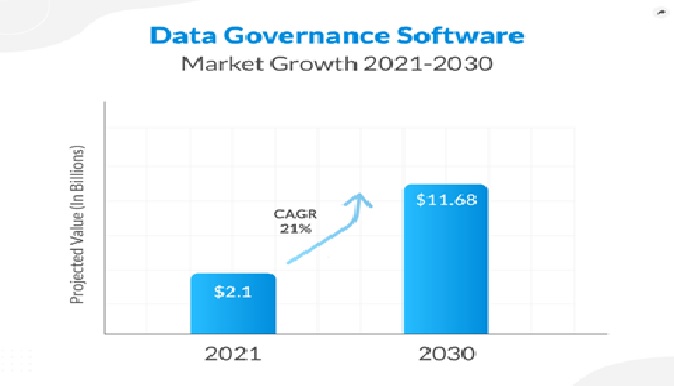
Figure 1. Data Governance
Data Governance is shown in figure 1. Data governance is a collection of processes, roles, policies, standards, and metrics that ensure the effective and efficient use of information in enabling an organization to achieve its goals. It establishes the processes and responsibilities that ensure the quality and security of the data used across a business or organization. Data governance defines who can take what action, upon what data, in what situations, using what methods.
Benefits of biomanufacturing
- Energy use reduction
- Increased innovation
- Sustainability
Data governance goals and benefits
A key goal of data governance is to break down data silos in an organization. Such silos commonly build up when individual business units deploy separate transaction processing systems without centralized coordination or an enterprise data architecture. Data governance aims to harmonize the data in those systems through a collaborative process, with stakeholders from the various business units participating.
Another data governance goal is to ensure that data is used properly, both to avoid introducing data errors into systems and to block potential misuse of personal data about customers and other sensitive information. That can be accomplished by creating uniform policies on the use of data, along with procedures to monitor usage and enforce the policies on an ongoing basis. In addition, data governance can help to strike a balance between data collection practices and privacy mandates.
Data governance implementation
Data governance should be a strategic initiative for organizations. In an article on creating a data governance strategy, Donald Farmer, principal of consultancy Tree Hive Strategy, recommended a series of steps to take, including the following to-do items:
- identify data assets and existing informal governance processes
- increase the data literacy and skills of end user and
- decide how to measure the success of a governance program.
The process of managing, protecting, and utilizing the data by the organizations to protect their data from all the threats and prevent any misuse of data is called data governance. A framework is required for all these procedures to get implemented. For data governance to be successful, the organizations must follow some of the best data governance practices to increase their maturity. Improvement in data quality, better decision-making, and data accuracy are some of the benefits of governance. Even though it has its merits and demerits, one cannot deny that every enterprise needs a proper functioning data strategy to ensure better business operations and make sure that the data is trusted and secure.
References:
- https://www.selecthub.com/business-intelligence/business-intelligence-trends/
- https://www.talend.com/resources/what-is-data-governance/
- https://www.techtarget.com/searchdatamanagement/definition/data-governance
- https://techeela.com/data-governance/
Cite this article:
Gokula Nandhini K (2023), Data Governance Will Be a Primary Ask When Seeking BI Software, AnaTechMaz, pp.40






